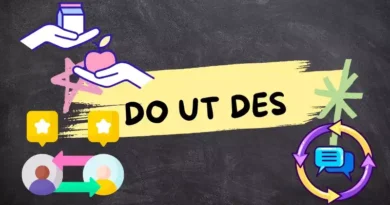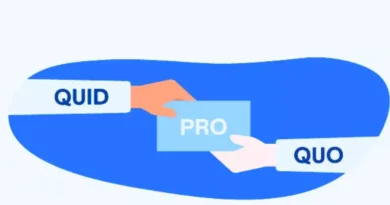Are Quid Pro Quo Donations Solicitations?
Quid pro quo donations can be considered solicitations when the primary intent of the donation request is to raise funds for the organization while providing a benefit to the donor. These transactions involve an exchange where the donor receives goods or services in return for their contribution. To qualify as solicitations, such donations must comply with legal requirements, including clear disclosures about the value of benefits received, to maintain transparency and adhere to regulatory standards. Therefore, while quid pro quo donations do fit within the broader category of solicitations, they require precise handling to ensure compliance with legal and ethical guidelines.
| Aspect | Description |
|---|---|
| Definition | Quid pro quo donations involve an exchange where donors receive something of value in return. |
| Legal Requirements | Must include written disclosures for donations over $75, detailing the value of benefits received. |
| Ethical Considerations | Requires transparency, fair valuation of benefits, and clear communication with donors. |
| Practical Implications | Involves accurate accounting, strategic donor communication, and policy development. |
| Tax Implications | Only the portion exceeding the value of benefits is tax-deductible; requires proper disclosures. |
| Common Examples | Museum memberships, event tickets from public broadcasters, and charity gala tickets. |
| Balancing Fundraising and Compliance | Necessitates strategic planning, staff training, and continuous monitoring to ensure compliance. |
Introduction
Quid pro quo donations are complex in charitable giving and legal regulations. At their core, these donations involve an exchange where the donor receives something of value in return for their contribution. This article explores whether quid pro quo donations can be considered solicitations, delving into the legal definitions, ethical considerations, and practical implications of such arrangements.
Understanding Quid Pro Quo Donations
Quid pro quo, a Latin term meaning “something for something,” refers to transactions where something of value is given in exchange for something else. In the context of donations, this means the donor receives a benefit that is directly tied to their contribution.
- Legal Definition: Legally, a quid pro quo donation is where the donor receives goods or services in return for their gift. For example, a donation to a charity in exchange for tickets to a gala event falls under this category.
- Tax Implications: The IRS requires charities to provide written disclosures for quid pro quo donations exceeding $75. The disclosure must inform donors of the value of the goods or services received, which can affect the donation’s deductibility.
- Examples: Common examples include memberships to museums or public broadcasting stations that offer premiums like tote bags or concert tickets in return for donations.
The Legal Perspective on Solicitations
Solicitations are requests for donations or contributions, often made by charities or nonprofit organizations. Whether quid pro quo donations qualify as solicitations depends on the nature of the request and the organization’s expectations.
- Charity Laws: Under charity laws, solicitations must be transparent about the nature of the request and any benefits the donor will receive. This transparency is crucial to maintaining trust and compliance with legal standards.
- Disclosure Requirements: Organizations must clearly state the fair market value of goods or services in exchange for donations. Failure to do so can lead to penalties and loss of tax-exempt status.
- Regulatory Oversight: Various regulatory bodies, including the IRS and state charity regulators, oversee solicitations to prevent fraud and ensure accountability.
Ethical Considerations
Beyond legal requirements, organizations must address ethical considerations when engaging in quid pro quo donation practices.
- Transparency: Ethical fundraising practices demand full transparency with donors about how their contributions will be used and what they will receive in return. This honesty helps build trust and encourages continued support.
- Fair Value: Organizations should provide fair value for the donations received. Overvaluing benefits can mislead donors and undermine the organization’s integrity.
- Donor Expectations: Managing donor expectations is critical. Clear communication about what donors will receive ensures no misunderstandings or disappointments.
Practical Implications for Charities
Charities engaging in quid pro quo donations must navigate various practical implications to remain compliant and maintain donor trust.
- Accounting Practices: Accurate accounting practices are essential to track the value of goods or services provided and ensure proper reporting to tax authorities.
- Donor Communications: Effective communication strategies should be in place to inform donors about the specifics of quid pro quo arrangements, including the value of benefits received.
- Policy Development: Charities should develop clear policies outlining their approach to quid pro quo donations, ensuring consistency and compliance across all fundraising activities.
Are Quid Pro Quo Donations Solicitations?
Determining whether quid pro quo donations qualify as solicitations involves examining the intent and execution of the donation request.
- Intent: The primary intent of the request is a key factor. Suppose the primary goal is to raise funds for the organization while providing some benefit to the donor. In that case, it can be considered a solicitation.
- Execution: How the request is executed also matters. Clear disclosures about the benefits received and their value align with the requirements for solicitations.
- Legal Precedents: Legal precedents and regulatory guidelines provide frameworks for understanding how quid pro quo donations fit within the broader category of solicitations.
Balancing Fundraising and Compliance
Charities must balance their fundraising strategies with legal and ethical compliance to avoid pitfalls and build lasting relationships with donors.
- Strategic Planning: Developing a strategic plan for quid pro quo fundraising can help organizations maximize their efforts while staying within legal boundaries.
- Training and Education: Regular training and education for staff and volunteers on legal requirements and ethical standards ensure everyone is aligned and knowledgeable.
- Continuous Monitoring: Continuous monitoring and evaluation of fundraising practices help organizations stay compliant and make necessary adjustments.
Conclusion
While beneficial for both donors and charities, quid pro quo donations come with intricate legal and ethical considerations. By understanding these complexities and adhering to strict disclosure and transparency practices, charities can effectively utilize quid pro quo donations as a fundraising tool without compromising their integrity or legal standing. While these donations can be considered solicitations, they require meticulous handling to ensure compliance and maintain donor trust.
FAQ
What are the tax implications of making a quid pro quo donation?
Quid pro quo donations have specific tax implications, as only the portion of the donation that exceeds the value of the goods or services received is tax-deductible. The IRS requires charities to provide written disclosures for donations over $75, detailing the fair market value of the benefits received to help donors calculate their deductible amount.
How can donors ensure they receive accurate information about quid pro quo donations?
Donors can ensure accuracy by requesting detailed written disclosures from the charity, including the fair market value of any goods or services received. They can also verify the charity’s compliance with IRS regulations and consult with a tax advisor to understand the full implications of their donation.
Are there specific industries or types of organizations that commonly use quid pro quo donations?
Yes, organizations such as museums, public broadcasting stations, and educational institutions frequently use quid pro quo donations as part of their fundraising efforts. These entities often offer memberships, event tickets, or exclusive merchandise in exchange for contributions.
What should charities consider when offering goods or services in exchange for donations?
Charities should consider the fair market value of the goods or services, ensuring they provide transparent disclosures to donors. They must also comply with legal requirements for reporting and disclosure, manage donor expectations, and develop clear policies to guide their quid pro quo fundraising efforts.
What is a quid pro quo donation solicitation?
A quid pro quo donation solicitation is a fundraising practice where a donor is promised a specific benefit (such as an event ticket, merchandise, or service) in exchange for their monetary contribution. This arrangement transforms the donation into a transactional exchange, where the donor’s gift is partly motivated by the tangible benefit received.
How do quid pro quo donations differ from pure gift donations?
In pure gift donations, the donor gives voluntarily without receiving anything of material value in return, driven solely by charitable intent. In contrast, quid pro quo donations involve an explicit exchange—donors receive a benefit commensurate with their contribution, which can affect the donation’s tax deductibility and reporting requirements.
What does “reciprocity” mean in donation solicitations?
Reciprocity in this context refers to the expectation that both parties will receive something of value—the donor gets a benefit while the organization secures funds. When transparently disclosed, this mutual exchange helps define the boundaries between an ethical solicitation and one that might veer into improper inducements.
How is “consideration” applied in quid pro quo donation solicitations?
Consideration represents the value exchanged between the donor and the organization. In a quid pro quo solicitation, the organization offers a clearly defined benefit, and this value is measured against the donation received, ensuring that both sides enter a mutually beneficial agreement that is compliant with legal standards.
What is “benefit disclosure” in the context of donation solicitations?
Benefit disclosure is the requirement for organizations to clearly inform donors of the specific benefits they will receive in exchange for their donation. This transparency helps donors understand the full value of the transaction and ensures that the exchange is not misconstrued as a pure gift.
How is a “transactional exchange” defined in these solicitations?
A transactional exchange in donation solicitations means that the donation is not a gratuitous gift but rather a payment made in return for a promised benefit. This exchange must be fully documented and transparent to differentiate it from non-transactional charitable giving.
What distinguishes an “in-kind donation” from a quid pro quo donation?
An in-kind donation is a contribution of goods or services provided without any expectation of receiving a direct benefit in return, whereas a quid pro quo donation is explicitly tied to a promised tangible benefit. The latter’s reciprocal nature requires clear valuation of the benefit exchanged.
How do “regulatory requirements” affect quid pro quo donation solicitations?
Regulatory requirements mandate that organizations practicing quid pro quo solicitation must adhere to strict disclosure rules, accurately value the benefits provided, and ensure that all exchanges are transparent. This legal framework is designed to protect donors and maintain the integrity of fundraising activities.
What is “tax-deductibility” and how do quid pro quo benefits impact it?
Tax-deductibility refers to the portion of a donation that a donor can claim as a deduction on their taxes. When a donor receives a benefit under a quid pro quo arrangement, the value of that benefit must be subtracted from the donation to determine the tax-deductible amount, ensuring that only the net gift qualifies for deduction.
How does “donor intent” factor into quid pro quo solicitations?
Donor intent is the underlying motivation behind a contribution. In quid pro quo solicitations, assessing whether the donor’s primary purpose is to support the organization or simply to receive the promised benefit is crucial. Properly clarifying donor intent helps maintain ethical standards and prevents conflicts of interest.
What is meant by “exchange value” in these solicitations?
Exchange value refers to the estimated monetary worth of the benefit offered to the donor. This value is used to determine how much of the donation qualifies as a gift versus a payment for the benefit, ensuring fairness and legal compliance in the fundraising transaction.
How do “public benefit” considerations apply to these donation practices?
Public benefit considerations involve ensuring that the benefits offered in a quid pro quo donation solicitation align with the organization’s mission and serve the public interest. This ensures that the solicitation remains ethical and that the donor’s exchange contributes positively to community goals.
What role does “transparency” play in quid pro quo donation solicitations?
Transparency is critical; it requires that all terms of the exchange, including the nature and value of the benefit, be clearly communicated to donors. Such openness not only builds trust but also ensures compliance with legal requirements and prevents misunderstandings regarding the transactional nature of the donation.
How are “political donation” guidelines relevant to quid pro quo solicitations?
Political donation guidelines are especially stringent because quid pro quo elements in political fundraising can raise concerns about undue influence and corruption. Regulations require full disclosure of any benefits received, strict valuation of these benefits, and clear separation between voluntary political contributions and transactions that could be construed as inducements.
How can organizations ensure “legal compliance” in their donation solicitations?
Organizations can ensure legal compliance by developing robust internal policies that clearly delineate quid pro quo elements, adhering to federal and state regulations regarding benefit disclosure, valuing the benefits accurately, and maintaining detailed records of all transactions. Regular audits and staff training further help in aligning fundraising practices with legal and ethical standards.









